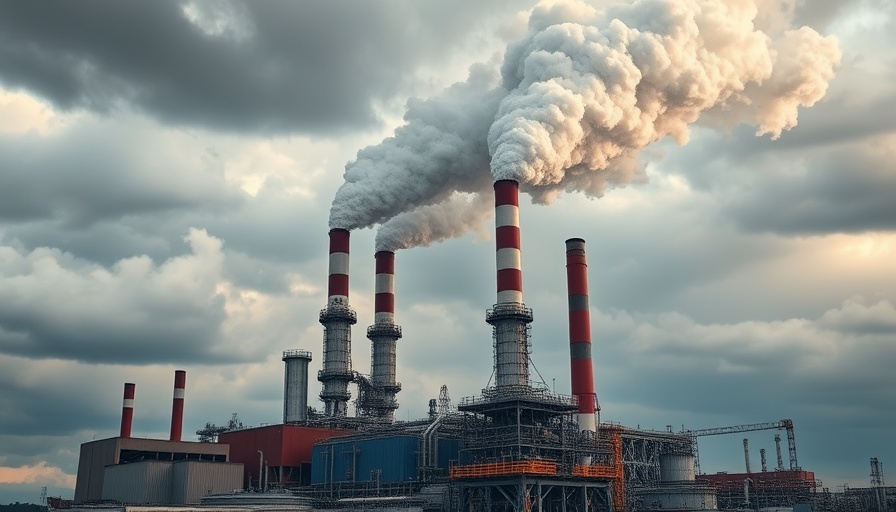
A New Approach to Industrial Decarbonization
In a world increasingly focused on combating climate change, the industrial sector represents one of the biggest challenges. Ara Partners, recognizing the potential for significant impact, has established an $800 million fund dedicated to decarbonizing aged industrial assets. Investments in climate tech have historically struggled to attract adequate funding due to the high capital requirements involved, especially for startups in this sector. Ara's latest initiative aims to bridge this funding gap, providing a viable pathway for startups looking to scale their climate solutions.
Capital Requirements and Climate Tech's Challenges
Many startups encounter a financial choke point after their initial funding rounds; they often grow too large for venture-backed investments yet still require substantial funding to realize their ambitious projects. This problem is exacerbated in space tech and clean energy solutions, where the capital needs can reach staggering heights. Ara's new fund stands as a pivotal move to fill this critical void amidst uncertainty from traditional investment outfits.
Focusing on Low-Carbon Developments
Ara Partners has already committed funds to several innovative companies, such as an organic waste recycler in Ireland and a developer of biofuel terminals. Their strategy emphasizes repurposing existing industrial assets, transforming them into platforms for low-carbon innovations. For instance, the use of biogas created from food waste not only mitigates landfill impacts but also provides sustainable energy alternatives. This multifaceted approach seeks to expand the resource economy, marrying environmental responsibility with financial viability.
Timing and Political Landscape
The arrival of Ara's substantial fundraising amid political uncertainty in the U.S. reflects a nuanced understanding of the market dynamics. As laws and regulations regarding decarbonization become clearer, many companies are finding ways to lower costs for low- and zero-carbon technologies, making them increasingly competitive. This shift towards favorable economics for clean tech solutions is encouraging both existing and emerging investments in the sector.
A Heartening Example: Investment in Divert
Ara previously invested in Divert, a company that specializes in turning food waste into biogas, showcasing an environmentally conscious business model that’s also financially promising. By donating eatable food and converting waste into energy, Divert exemplifies the innovative spirit that Ara seeks to nurture with its new fund. This provides a compelling case for a model that can pivot the industrial sector towards more sustainable practices without sacrificing economic incentives.
Future Predictions for Climate Tech Investments
The foundation Ara Partners has laid will likely inspire more funds and investments directed toward climate tech innovations. As global awareness of the climate crisis grows, so too does the push for greener solutions in business operations. The model established by Ara serves as a blueprint for future investors interested in marrying profitability with environmental responsibility. This is not merely a trend; it’s an evolution in how industries can approach sustainability.
Why This Matters to Investors and Businesses
Investors who recognize the potential of decarbonization strategies not only stand to gain financially but contribute to the broader effort against climate change. For businesses, aligning with these initiatives can enhance their brand image, consumer loyalty, and long-term viability in a quickly evolving market landscape. Understanding the opportunities fostered through such investments is critical for navigating the complexities of sustainability in business.
Conclusion: Embracing a Greener Future
Ara Partners’ efforts reflect a progressive shift towards integrating sustainability within industrial practices. As more funds like this emerge, the pathway toward decarbonizing traditional industries will become clearer, paving the way for the next generation of climate tech innovations. It is imperative for businesses and investors alike to engage with these movements to secure a sustainable future, fostering an ecosystem that values both ecological and economic resilience.
 Add Row
Add Row  Add
Add 



Write A Comment